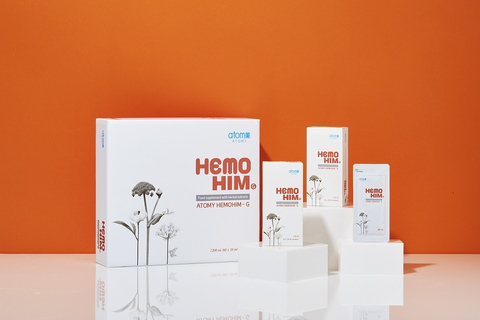
Seoul, South Korea:

HemoHim G, produced by Kolmar BNH and distributed by Atomy is gaining a great popularity around the world (Image: Kolmar BNH)
HemoHim is Korea’s first individually-approved health functional food designed to enhance immune function and alleviate fatigue. Developed by Kolmar BNH in 2006, it is formulated with domestic natural ingredients such as angelica gigas, cnidium officinale, and paeonia japonica. Distributed by Atomy, HemoHim is exported to about 20 countries, including the United States and China. Since its launch, it has generated over KRW 2 trillion in cumulative domestic and international sales, with exports surpassing USD 200 million.
HemoHim’s nearly 20-year consumer preference is highly attributed to the “trust earned through rigorous quality control.” Kolmar BNH, the manufacturer of HemoHim, maintains strict oversight over the cultivation of its primary raw materials—Korean angelica gigas Nakai, cnidium officinale, and paeonia japonica—ensuring their safety. The company has established a dedicated food safety team to continuously share technology and provide education to raw material cultivating farms, while rigorously inspecting the safety, stability, and efficacy of these ingredients.
Furthermore, Kolmar BNH has enhanced its quality competitiveness by developing genetic testing methods to verify the country of origin, ensuring the prevention of contamination of primary raw materials with other species. In July, Kolmar BNH patented a genetic analysis method (SCAR Marker) that identifies the origin of Korean angelica gigas by recognizing specific genetic regions. Moreover, Kolmar BNH developed a genetic analysis method using PCR (polymerase chain reaction) analysis for cnidium officinalea and paeonia japonica and completed the patent registration process two years ago.
Safety was also the top priority for HemoHim G, a latest product targeting the global market. In April, Kolmar BNH published a study on HemoHim G in the SCIE-ranked journal ‘Toxicological Research,’ demonstrating its safety. Conducted according to OECD guidelines, the study holds significance not only in facilitating safety approvals in other countries but also in securing intellectual property rights with reliable results.


















































